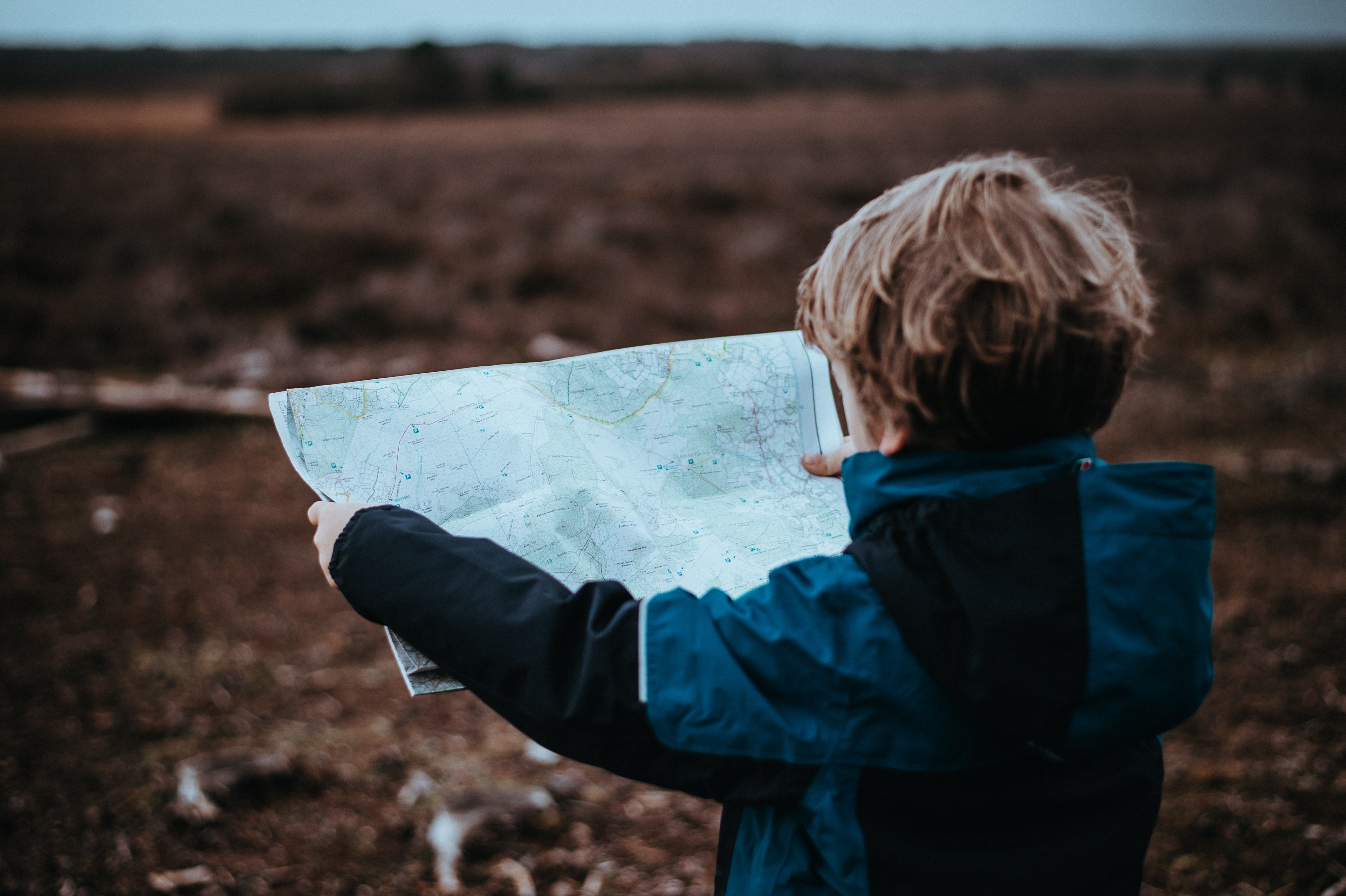In an urgent need for control, you are likely to take paths that lead to the same stuck place.
Feeling lost and being lost is incredibly frustrating and frightening.
I can still see my son’s precious little face in the rearview mirror as he voices his frustration, sincere and without a shred of sarcasm, “Mommy, do we have to get lost every time we go to the store?”
The back roads of our new living area were indeed a challenge for me. Looping through fields and cow paths, they all looked the same. In fact, from town to town, the names often repeated, although the streets did not connect.
I was determined to have “quick and scenic” travel to shopping. And so, my four-year-old travel buddy was correct. We were lost… every time.
Like so many during this unprecedented COVID-19 Coronavirus pandemic experience, I often feel lost.
Each attempt to figure things out feels like coming back around to the same intersection over and over again. And like my son, I feel bewildered.
Why am I doing this to myself?
Like me, you may be feeling lost in life right now, finding it hard to locate your internal compass. And when you find it, the arrow no longer points to North.
The pandemic experience ranges from a mild frustration for some to a complete lack of foundation for others.
But here’s the thing: In an urgent need for control, you are likely to take paths that lead to the same stuck place.
And while nature and humans sort this whole thing out, here are 4 steps to take to find your way when you’re feeling lost and out of control.
1. Pause, breathe, and allow yourself to feel your emotions.
This advice often feels contrary to the concept of ‘feeling better’. Why would you want to feel the emotions which are clearly causing you discomfort?
The answer is simple: There is crucial information in those feelings. When you push them away in an effort to feel better, you seriously limit your ability to find your way out of those same feelings.
Thus, you will keep repeating the same steps that perpetuate your pain.
2. Name what is so frustrating for you personally right now.
Try stating your frustrations out loud. Say them just like they feel. Record them on your phone. Write them down in all of their frustrating splendor.
Let your body feel. Do not edit or criticize yourself. Just listen and breathe.
Important information this exercise reveals: This is your learned response when you feel lost and distressed.
Your nervous system has probably been responding this way since the first time you got lost or experienced another person’s frustration about being lost. It’s important for you to know about this part of you!
Since these sensations typically come from young, vulnerable experiences, be kind to yourself when you feel this way.
Rather than doubling down with criticism, offer yourself a kind word. Place your hand on your chest or wherever you feel the frustration and offer yourself a pat of compassion. It’s also OK to cry or scream.
After you’ve heard, comforted, and calmed your frustrated feelings, you’re ready to use a different part of your nervous system.
Remember that sometimes earlier in your life, you have intentionally or accidentally wandered.
This is the fun part and it will get you out of your ‘lost loop’.
3. Write or state what comes to mind when you think about wandering or exploring.
Did you explore with your mind or mix up magic potions in your kitchen? Were you able to search out new outdoor paths or follow novel sidewalks to go somewhere new?
When have you wandered without knowing exactly what would happen — for fun?
I remember, as a child, taking an unknown turn on a hillside path near my home. Realizing I had no idea where I was, my heart raced as I began breaking through the forest in, what I imagined to be, the right direction.
In other words, I was following an imagined aerial view of my position — like a map.
Fortunately, after some rough terrain, I popped out in my neighbor’s back yard. No longer lost, I had found my way by using the larger picture in my mind — my experience in the woods.
Now — and only now — that you have witnessed your lost feelings right where they are, you can shift out of feeling lost.
4. Invite yourself to play in your memories and feelings of discovery, perspective, adventure, and strength.
You’ll be able to remember them much better now that you are using more of your nervous system beyond your young, lost sensation.
Be your whole self in this exercise. Practice having your fearful young nature walking hand in hand with your explorer and your adult self.
Widen your lens, picturing not only where you are right now but what you know about all the resources around you. You can even share these memories and feelings with someone you trust.
Try trading stories of early adventures while wandering.
Author J.R.R. Tolkien once wrote, “Not all those who wander are lost.”
Tolkien’s wisdom is true about people in society and also within each person.
You are never completely lost. If you focus inside to offer compassion, you will soon be able to zoom out to find strength, resources, and the bigger picture, especially during this time of confusion and uncharted territory.
Be kind to yourself and others. We will all find our way.
Previously Published on Your Tango.


